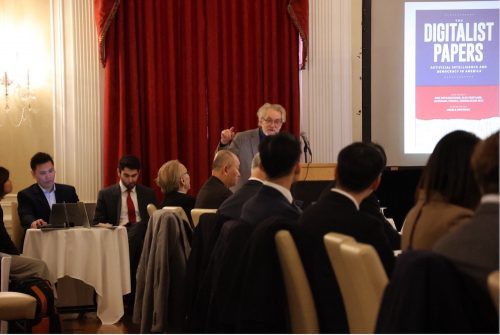Artificial Intelligence is one of the most representative disruptive technologies that enable the development of society at the global level. AI has advantages for humankind, while also bringing with it safety and security challenges. The Position Paper of the People’s Republic of China on Strengthening Ethical Governance of Artificial Intelligence (AI) released on Nov 16 highlights China’s vision, practices and views for ethical governance of the technology from the perspective of global cooperation and coordination. It calls for global consensus with mutual respect, and actions for the good of humanity: https://www.chinadaily.com.cn/a/202211/23/WS637d5175a31049175432b4d6.html
It is true that China has a reputation for not having freedom of the internet and freedom of education. The Chinese government has a long history of censorship and control of the internet, and it has imposed strict controls on the content that is available online. This has led to widespread complaints about the lack of freedom on the internet in China, and many people have criticized the government for stifling free speech and limiting access to information.
Similarly, the Chinese government has also been criticized for its lack of freedom in education. The government controls the content of education in China, and it has been accused of promoting a narrow and biased view of history and politics. This has led to concerns about the quality of education in China, and many people have called for greater freedom and diversity in the education system.
Overall, the lack of freedom of the internet and freedom of education in China is a cause for concern, and it has led to widespread criticism of the Chinese government’s policies in these areas and AI, Data, Digital.
It is a concern that the government of China are using AI and data to create a totalitarian state. The use of these technologies for surveillance and control purposes could allow the government to monitor and control the actions and behaviors of its citizens in unprecedented ways. This could lead to a situation in which individual rights and freedoms are severely curtailed, and the government has near-total control over society. This would be a disturbing development, and it is important for individuals and organizations to be aware of the potential risks and to take steps to protect against abuses of these technologies.
This means that the Chinese government do not meet the standards of the Social Contract for the AI Age, so one should not trust the CCP’s vision on AI ethics and governance.











